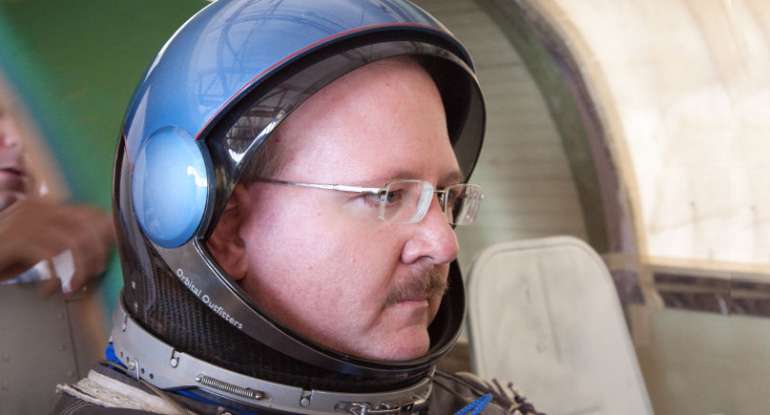In this excellent interview, Jeff Greason explains in plain and simple words why civilization needs to expand into the outer space, why the expansion shall be a manned one, and why we need it now, and not in a distant future. We copied here, adding some comments of ours, some of the most interesting points made by Jeff. But of course we invite everybody to read the whole interview.
About the basic socio-economic need for civilian space development, Jeff says: “There are many reasons which are true, but I find secondary, though others find them compelling. For example, the industrial and economic development of space is going to require both machines and people – just as has been the case in all past economic development efforts. And that economic development will drive some significant features of life on Earth. For example, raising the standard of living of everyone on the planet to “first world” levels is going to require something like 30% increase in the energy use of human civilization, and space is about the only place to get that (if you didn’t know, the solar system has about a billion Earth’s worth of energy available).”
And, on the philosophical topic: “There is the long run argument, that there are indeed risks to the survival of the human species; planetary disasters, both natural and man-made, are possible. A good argument can be made that all successful species spread to all available ecological niches, and human beings are unique in that we have used tools and technology to redefine what we can consider “habitable” – if you think things like clothing, agriculture, controlled fire, fishing and whaling boats, aren’t ‘technology’ then try living without them! And it is our increased use of energy, to drive high intensity agriculture, fertilizers, transportation of food and materials, heating and cooling, synthesis of metals and concrete, and most recently, global trade, that has allowed us to greatly expand the human population and decrease dramatically both the fraction of that population, and even the absolute number of people who live in serious poverty. If we want civilization to continue, we need to continue that expansion to new niches, and if we want to insulate ourselves against risks to the planet, we need that population to include as many planets – indeed, as many star systems – as possible.”
Hereafter, Jeff addresses an argument that is very relevant, for us at Space Renaissance, the argument of urgency, and how to communicate this urgency to the people at large. “I think that argument is true but it lacks urgency. It’s like defending against an asteroid strike – it’s easy to see it’s a good idea, and that it would be cheap insurance, but after all, it might not strike for a thousand years, so that doesn’t strike people as urgent. And the fact that it’s just as likely to happen next month as in a thousand years doesn’t move people, even though that’s quite true.”
Another argument dear to SRI is then developed: we are not simply interested to survive as a species, we want our civilization to survive, with our way of life, that means our culture, as it results from hundreds thousands years of history and our freedom. “What motivates me is not so much the threat to human civilization, but to the KIND of civilization I want to live in – one that values human beings and human freedom. It is common for people to treat those conditions as if that was the normal condition of humanity when very obviously, it is not now the norm everywhere on the planet, and as recently as a few centuries ago, was not the norm anywhere on the planet. Having a physical frontier – a place you can go, if you really, really want to, has been essential to the maintenance of that kind of civilization, for two reasons. First, is philosophical. Why should you value freedom? If someone else has something you want, why not go and take it? Yes, we all know that trade and civilization could not exist if there were no security of private property – but what’s that to you? You have to understand – to believe — that you have something to gain from civilization – that you have a stake in it. You have to understand that it is NOT a zero-sum game – that the pie can get bigger. A quick study of history shows that it has been getting bigger, very fast, but people don’t study history. They have to SEE it. Well, when you can see new lands next door, new farms, new fields, new forests, it’s hard to convince people that they can’t better themselves if they want to put in the work. Calls for socialism and collectivism find fewer ears.”
Of course, in a context of abundant resources and greater social development opportunities for everyone, there will be objectively less opportunities for coercive collectivist regimes, of any ideological imprinting, both socialist or fascist. And, we would like to add, also calls for wars and violent confrontations should find fewer ears. So there will be a chance for some ethical step forward.
Interview part one, including an essential Jeff’s bio.
Interview part two, the philosophical and socio-economic discussion.








 Space Renaissance France Chapter
Space Renaissance France Chapter  Space Renaissance USA, Inc.
Space Renaissance USA, Inc.  Space Renaissance Italia Chapter
Space Renaissance Italia Chapter Space Renaissance Academy
Space Renaissance Academy Space Renaissance Initiative Group
Space Renaissance Initiative Group